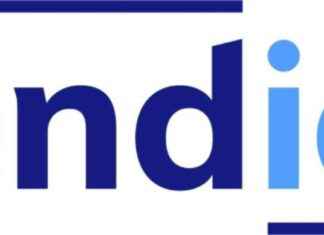Meta, Mark Zuckerberg’s company, launches the microblogging social network Threads to the world on Thursday, intended to compete with Twitter which, since it was bought by Elon Musk in October, has been experiencing a slump in advertisers and has lost two-thirds of its value, according to the fund manager Fidelity. There is only one region that Threads will not reach: the European Union. The reason seems to be the legal uncertainty generated by the Digital Markets Act (colloquially known by its acronym in English, DMA), which came into force in the fall of last year.
The WFD has also been the reason why another technology giant, Alphabet (the owner of, among others, Google and YouTube), three weeks ago left the EU out of the 180 countries in which it has introduced its artificial intelligence chatbot. generative Bard, destined to compete with the very famous ChatGPT from OpenIA and Microsoft.
So the Europeans won’t have Threads or Bard, at least for a while. The reason for the caution of Meta and Alphabet is that the WFD must be developed by the European Commission, which opens the possibility that the new product of will find, within a few months, that it violates European legislation on the treatment of data. Alphabet faces the same dilemma with Bard. And dilemmas, unlike problems, do not have a solution. With them, what you have to do is bet, so, continuing with the simile, the two Silicon Valley giants have decided that they are not going to play this game. .
According to experts, this situation could be a preview of what will happen in the European Union in the coming years. The so-called Big Tech – the big technology companies – know that they will have to face additional costs to comply with European regulations, and they are willing to do so, as long as they are guaranteed a stable legal framework. “Meta, Alphabet, or any other technology company is going to have to hire a greater number of engineers in Europe to comply [that is, meet the Brussels conditions], and that is complicated when new products are being launched whose financial success It is far from guaranteed. If we add to this a legal framework that has not yet been developed, the normal thing is that nobody wants to take risks, “these same sources explain.
Meta and Alphabet – along with other companies, such as Apple – have designated themselves this week as “gatekeepers” of the Internet, according to the portal specializing in commercial law applied to technology MLex. That means those companies will be subject to a stricter regulatory framework under the WFD. Within two months, the European Commission will make public the list of companies that are “gatekeepers of the internet.”
All will be American -including those mentioned above-, South Korean (Samsung) and Chinese (ByteDance, the owner of TikTok). There will be no European one, which is partly due to the EU’s decades-long delay in new technologies and, according to critics in Brussels, because the measure is a form of undisguised protectionism, let’s see if it ever comes out like that ‘Big Tech’ from the Old Continent.
THE DMA prohibits the transfer of user data between different platforms, even if they belong to the same company, which threatens the business model of Meta, which owns the social networks Facebook and Instagram, and the message and voice service WhatsApp .
Meta’s decision to launch an alternative to Twitter has even had a personal component, with Mark Zuckerberg, famous for his love of sports, challenging Elon Musk to a mixed martial arts fight, a type of wrestling that has tremendous popularity. in the United States, where it is often referred to as “cage fighting”, due to the characteristics of the ring in which it is held. Musk, who is practically addicted to any form of self-promotion, has agreed, although nobody knows if this is going to be a boutade or if we are going to see the richest man in the world (Musk) and the ninth (Zuckerberg) breaking their faces.
Threads’ arrival is also a lesson for business schools. Just a year after Zuckerberg changed his company name from Facebook to Meta and announced the company’s transition from social media to the metaverse and virtual reality, he’s doing what he really knows how to do: launching a platform for people post messages on it. The same can be said of Musk, who has regained the throne of the richest man in the world this year thanks to his car company Tesla and his rocket company SpaceX, which could be planning its IPO, after having buried more than 30,000 million of his and another 15,000 from various partners on Twitter, a social network he never knew how to run.
According to the criteria of The Trust Project







